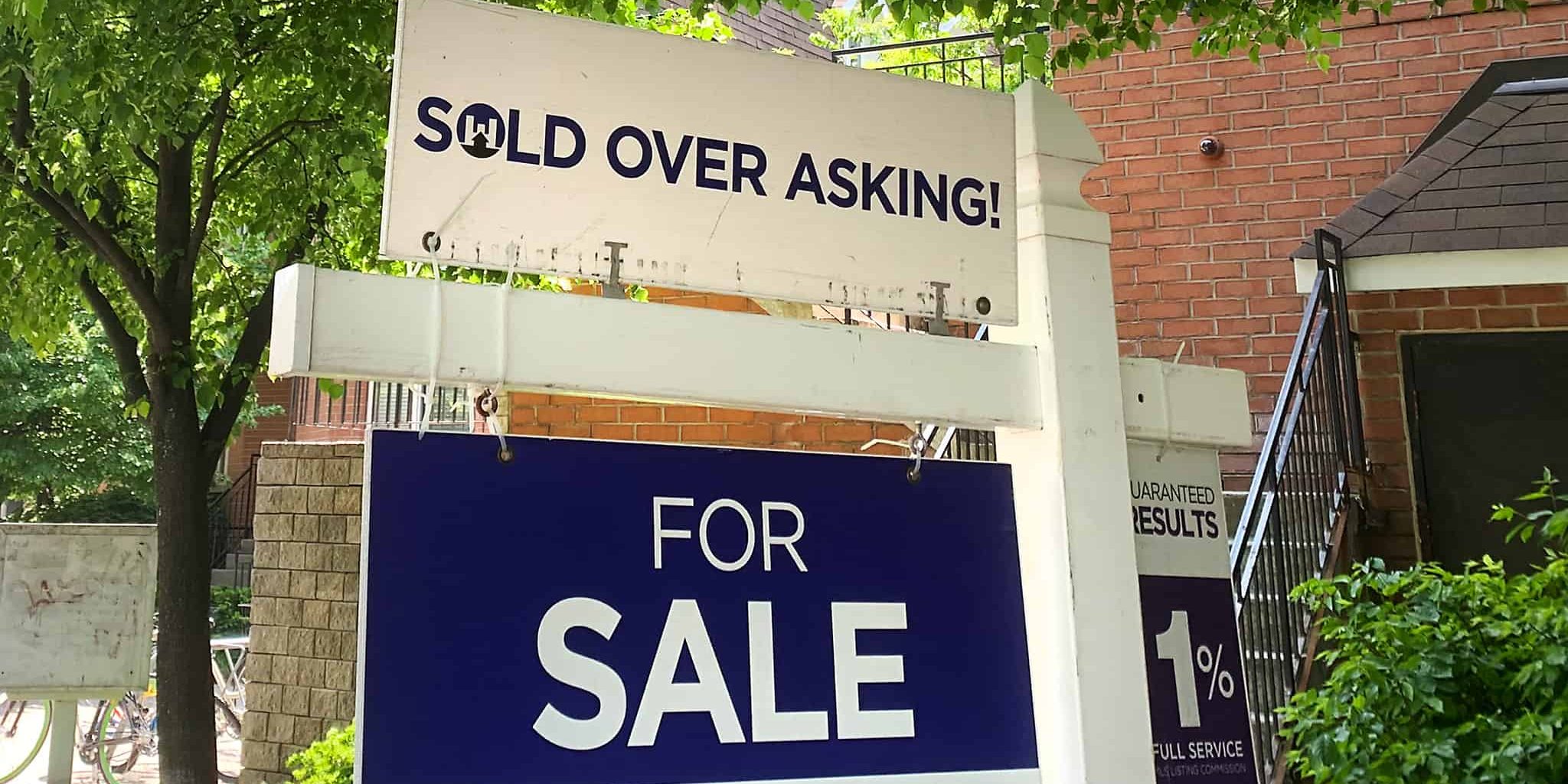Top 3 alternative ways to buy a home revealed in Canada
Published February 27, 2024 at 1:30 pm

As home prices increase, forcing many out of the housing market, young Canadians are looking at non-traditional ways to buy a home.
The average price for homes in most places in the GTA is around the $1 million mark with condos coming in around $600,000 and detached homes over $1.2 million.
A recent report found that no housing type was affordable to buy for average earners in Mississauga.
Economic factors, including the high cost of living, high interest rates and the price of housing, are prompting one-third of Canadians to explore alternative ways of entering the housing market (32 per cent), according to a Leger survey commissioned by Re/Max Canada.
Re/Max found the three most common alternative ways Canadians would consider entering the housing market are:
- rent-to-own (22 per cent);
- co-ownership with a family member that isn’t a spouse or partner (21 per cent);
- owner and primary tenant, renting out a part of the home (17 per cent).
The survey found that 13 per cent of current homeowners in Canada purchased their home using non-traditional means.
Nearly half of Canadians (48 per cent) would consider non-traditional forms of home ownership in the future.
“Canadians from coast to coast are grappling with affordability challenges, but at the same time, their desire to achieve home ownership remains strong,” says Christopher Alexander, president of Re/Max Canada.
“This is prompting many to seriously consider alternative ways to get their foot in the door, where it might not be feasible under the traditional ownership model of a single person or couple purchasing with between five and 20 per cent down.”

Demographically, young (aged 18-34) homeowners (25 per cent), and BIPoC Canadians (27 per cent) are significantly more likely to have purchased their home using an alternative method.
In Ontario cities such as Brampton, Mississauga, Hamilton, Burlington and Oakville non-traditional home-ownership models have increased over the last year, according to Re/Max brokers.
The top three non-traditional home-ownership models in this part of the province are tenants-in-common, secondary suites and joint tenants.
Joint tenants ownership is usually defined as homeowners who have equal rights to the whole property. Tenants-in-common means each person can hold a different share of the property.
In London, Brampton and Mississauga, homebuyers are increasingly searching for properties with secondary suites to accommodate intergenerational households.
In Mississauga and Brampton, secondary suites are often intended to accommodate extended family members or to generate rental income to support the costs of growing extended families.
Whereas in Hamilton, Burlington and Oakville, sales data shows many agreements with multiple names on purchases, meaning there are likely a variety of instances of joint ownership.
Multigenerational buyers have also increased in the Hamilton, Burlington and Oakville area, anecdotally, by approximately 300 per cent over the last five years.
In Ontario cities such as Brampton, Mississauga and London, municipal governments have recognized the benefits of secondary income suites and have implemented supportive policies to encourage their development through streamlined approval processes and relaxed zoning restrictions.
Non-traditional home ownership models are emblematic of a new, modernized chapter in what it means to be a “homeowner,” an identifier more often associated with an individual or a couple, the survey found.
“But creativity in the home-buying process is a workaround, not a solution to Canada’s affordability crisis,” says Alexander. “Like modern, innovative homebuyers, our governments must be more strategic and visionary in how we can use existing lands and real estate to drive our housing supply to allow for a greater diversity of housing for all Canadians.”
The Leger survey of 1,522 Canadians was completed on behalf of Re/Max Canada, between Jan. 19 and 22, 2024, using Leger’s online panel.
See the full report from Re/Max here.
Lead photo: Pixabay
INsauga's Editorial Standards and Policies